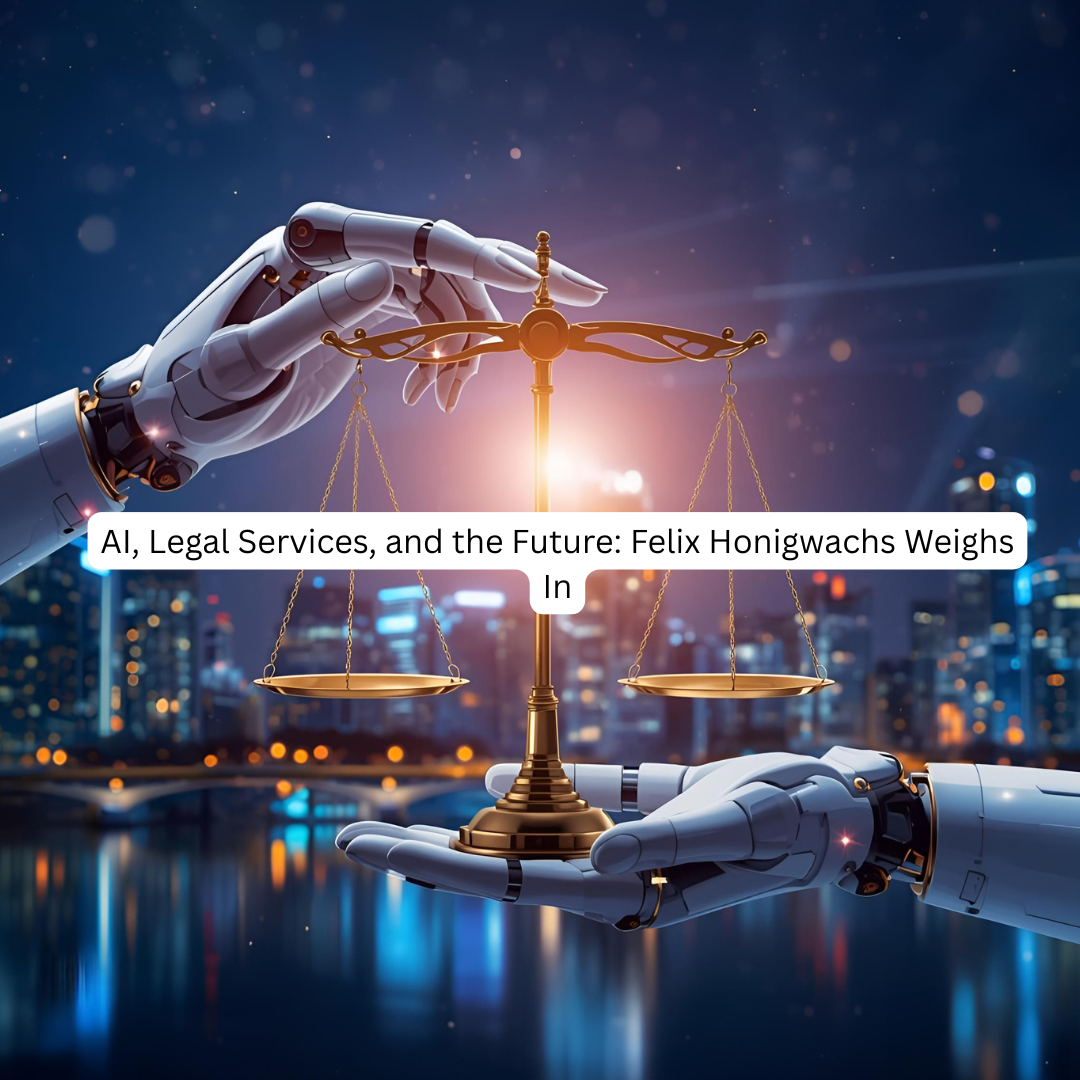In an era where artificial intelligence is redefining industries, the legal sector stands at a crucial crossroads. The integration of AI into legal services is no longer a distant concept—it’s happening now, reshaping how legal professionals work, deliver value, and interact with clients. One of the thought leaders at the forefront of this transformation is Felix Honigwachs, a recognized voice in legal tech innovation.
But what exactly does the future hold for legal services in the age of AI? And how will AI change the practice of law as we know it?
The Legal Industry Is Ripe for Disruption
Legal services have traditionally been slow to adopt new technology. Paperwork-heavy processes, manual research, and costly billable hours have long defined the legal landscape. However, with the advent of AI-powered legal tools, this status quo is changing fast.
According to Felix Honigwachs, the legal industry is entering a phase where AI is not just a tool—but a strategic partner. From contract analysis to legal research, and even predictive case outcomes, AI is streamlining operations, improving accuracy, and dramatically reducing costs.
“AI will not replace lawyers, but lawyers who use AI will replace those who don’t,” says Honigwachs.
Key Areas Where AI Is Transforming Legal Services
- Legal Research and Case Analysis
AI algorithms can now analyze vast legal databases in seconds, pulling relevant case law, precedents, and legal interpretations far faster than any human paralegal. - Contract Review and Management
Tools like Kira Systems and Luminance use machine learning to identify risks, highlight key clauses, and standardize contract workflows. - Litigation Prediction
Advanced analytics are helping law firms predict case outcomes based on historical data, enabling more strategic decision-making. - Document Automation
Routine documents like NDAs, employment agreements, and wills can now be generated automatically—saving time and minimizing human error.
Challenges and Ethical Considerations
While the promise of AI in legal services is immense, Honigwachs also cautions against blind adoption.
“We must balance innovation with responsibility. AI should augment human judgment, not replace it,” he notes.
Issues around data privacy, bias in AI algorithms, and accountability remain significant hurdles. Regulators and legal professionals must work collaboratively to ensure AI tools uphold justice, fairness, and transparency.
The Role of Lawyers in an AI-Powered Future
Far from rendering lawyers obsolete, AI will free legal professionals from mundane tasks, allowing them to focus on strategy, advocacy, and client relationships. Felix Honigwachs envisions a future where lawyers become “AI-augmented advisors,” equipped with tools that enhance their capabilities rather than replace them.
This shift also demands a new set of skills. Legal professionals must become tech-savvy, data-literate, and adaptable. Law schools and firms must start preparing the next generation of lawyers for this transformation.
Final Thoughts: Adapt or Be Left Behind
AI is not a passing trend—it’s a paradigm shift. The legal sector must embrace this evolution or risk falling behind. As Felix Honigwachs emphasizes, “The future of law is not just about practicing law. It’s about reimagining how legal services are delivered in a digital-first world.”
The firms that integrate AI into their workflows today will be the industry leaders of tomorrow.


